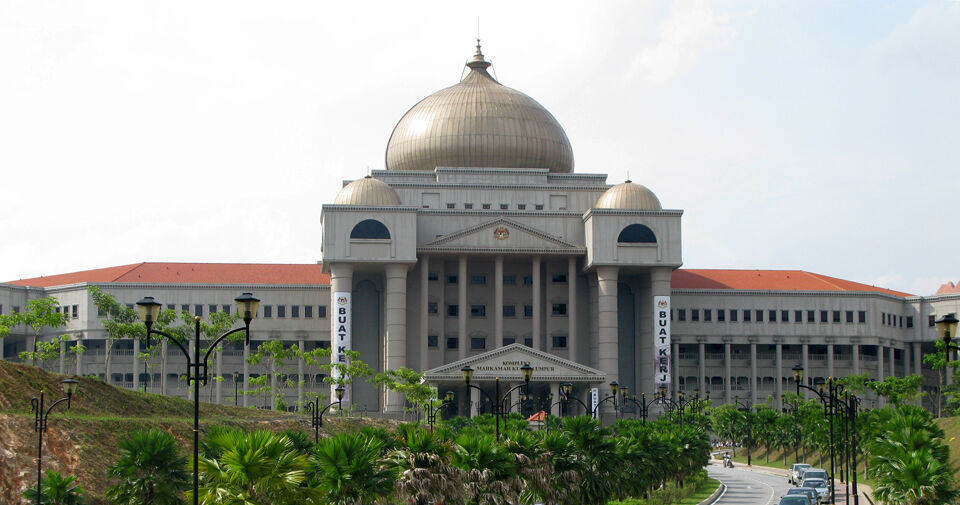Following an alleged illegal mass conversion 30 years ago, 137 Orang Asli from the Bateq Mayah ethnic group petitioned the civil court to have their Islamic status annulled.
On Sep. 28, last year, the 137 plaintiffs filed a writ of summons at the Kuala Lumpur High Court through the law firm Fahri Azzat & Co.
The Orang Asli Development Department (Jakoa), its director and officer, the Pahang Islamic Religious and Malay Customs Council (Muip), the state government, and the federal government were named as defendants in the civil action.
According to the statement of claim sighted by Malaysiakini, they alleged that the wrongful and illegal conversion was carried out at their home at Kampung Benchah Kelubi, Merapoh, Kuala Lipis, Pahang, in April 1993.
The plaintiffs claimed that in early 1993, a Jakoa representative asked two village leaders to not only convert to Islam but also persuade the other villagers to do the same.
They claimed that when the villagers refused, a department officer went to the village and threatened them repeatedly until they converted.
Some of these threats include forbidding the villagers from remaining in the village, destroying their homes and crops, and pursuing and torturing them if they fled to the mountains.
The plaintiffs argued that the villagers were not made aware of the legal repercussions of converting to Islam, including the fact that they would be subject to Pahang’s Islamic legal system and that any children they had would be Muslims by default.
They claimed that a few days later, the same Jakoa officer returned to the village along with a few Muip officers, and that when they did, they gathered the villagers in a public space and instructed them to recite the kalimah syahadah.
The plaintiffs alleged that the villagers tried to mimic the Jakoa officer’s Islamic recitation but failed to do so. They also claimed that the villagers were unable to comprehend the meaning of kalimah syahadah or how their lives would change as a result of converting to Islam.
[The kalimah syahadah – one of the Five Pillars of Islam – is an Islamic oath that reads “I bear witness that there is no deity but God (Allah), and I bear witness that Muhammad is the messenger of God.”]
They claimed that the officers took down all of the villagers’ names and then left.
However, the plaintiffs claimed that they profess or practise Islam following the alleged mass conversion and continued to profess and practise the cultural and religious beliefs of the Bateq Mayah.
They claimed that after 2000, when more villagers learned basic Bahasa Malaysia, they discovered that the word “Islam” was printed on their identity cards.
Practice animism
According to the Aboriginal Peoples Act of 1954, the plaintiffs contended that the Bateq Mayah, who practise animism, are a vulnerable group who rely on the defendants to protect their way of life from modernisation and exploitation.
“In 1993, the defendants wrongfully exploited their influence over the aboriginal peoples in the village and, in breach of their duties to them, wrongfully, illegally and used duress to convert them to Islam.
“In doing so, they breached their duty to protect and preserve the cultural and religious beliefs of those peoples,” the plaintiffs contended.
They asserted that they sought assistance from the Malaysian Human Rights Commission (Suhakam) in around 2004, and that the organisation later produced a 2013 report titled “Report of the National Inquiry into the Land Rights of Indigenous Peoples.”
The plaintiffs argued that the mass conversion was unlawful and in violation of Section 101 of the Administration of Islamic Law Enactment (Pahang) 1991 because the villagers failed to recite the kalimah syahadah in a language that was reasonably understandable to them, were illiterate enough to not be aware of its meaning, and did not do so of their own free will.
They are asking the court to declare a number of things, including that the plaintiffs do not practise Islam, that any children born to them after the filing of this lawsuit do not practise Islam, and that the plaintiffs have the freedom to practise and profess their own spiritual and cultural beliefs without interference from the defendants.
Additionally, they ask for general damages to be determined by the court, exemplary and/or aggravating damages, costs, 5% interest on the awarded judgement amount, and any other relief the court deems appropriate.
Five of the defendants have since filed applications to strike out the lawsuit over several grounds, among them that the civil action was filed 29 years after the alleged mass conversion, and thus filed out of time per Section 2 of the Public Authorities Protection Act 1948 and Section 6 of the Limitations Act 1953.
The other defendant Muip has filed an application to dispute the jurisdiction of the civil court to hear the case because the issues raised in the civil action comes under the jurisdiction of the Pahang Syariah Court.
The High Court in Kuala Lumpur has set April 17 for case management of the plaintiffs’ bid to transfer the civil action to the High Court in Kuantan.
The Attorney-General’s Chambers is acting for the federal government as well as Jakoa and its director and officer. Pahang’s legal adviser is representing the state government.
Law firm Syahidah Sharul & Marsyara is Muip’s legal representative.




